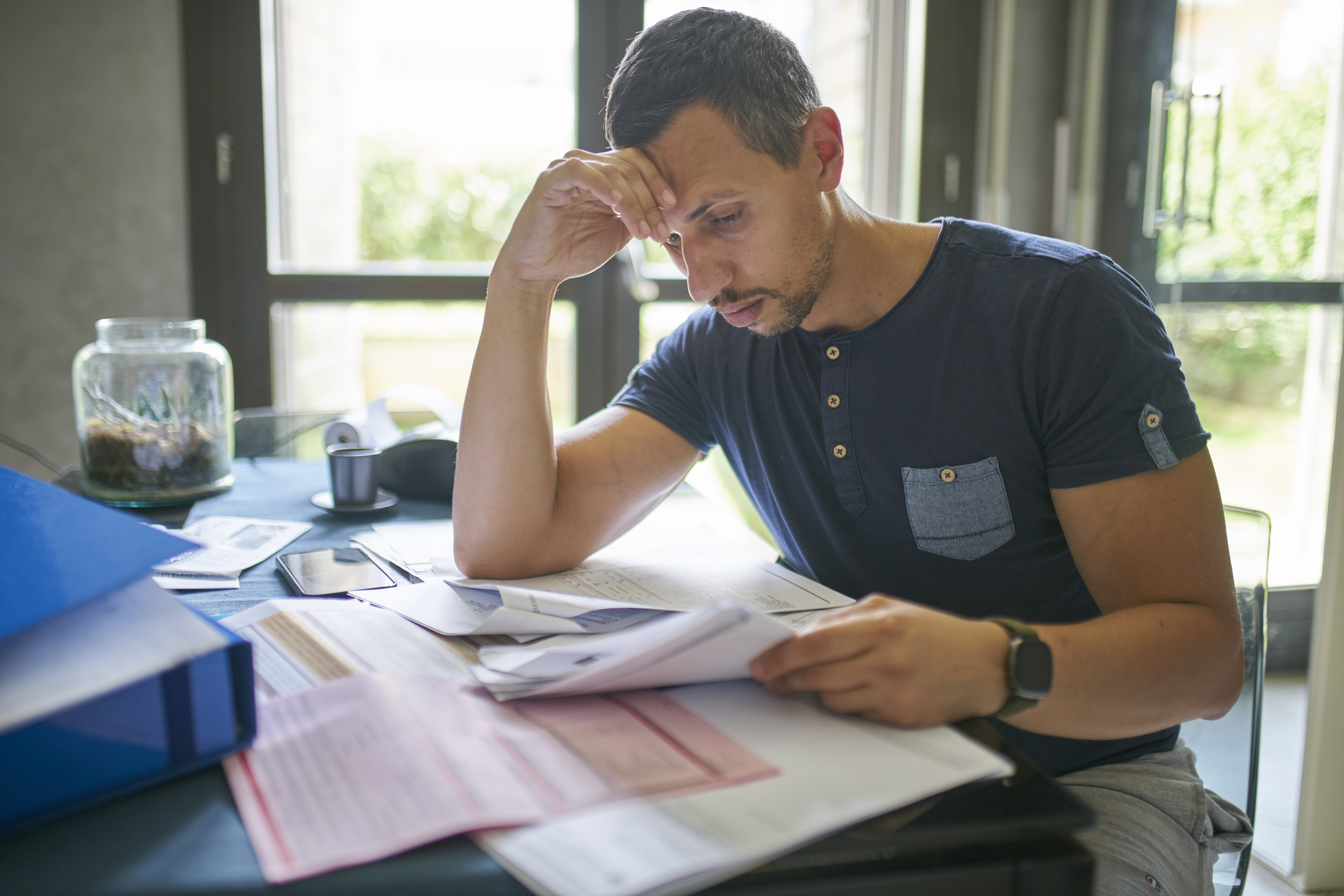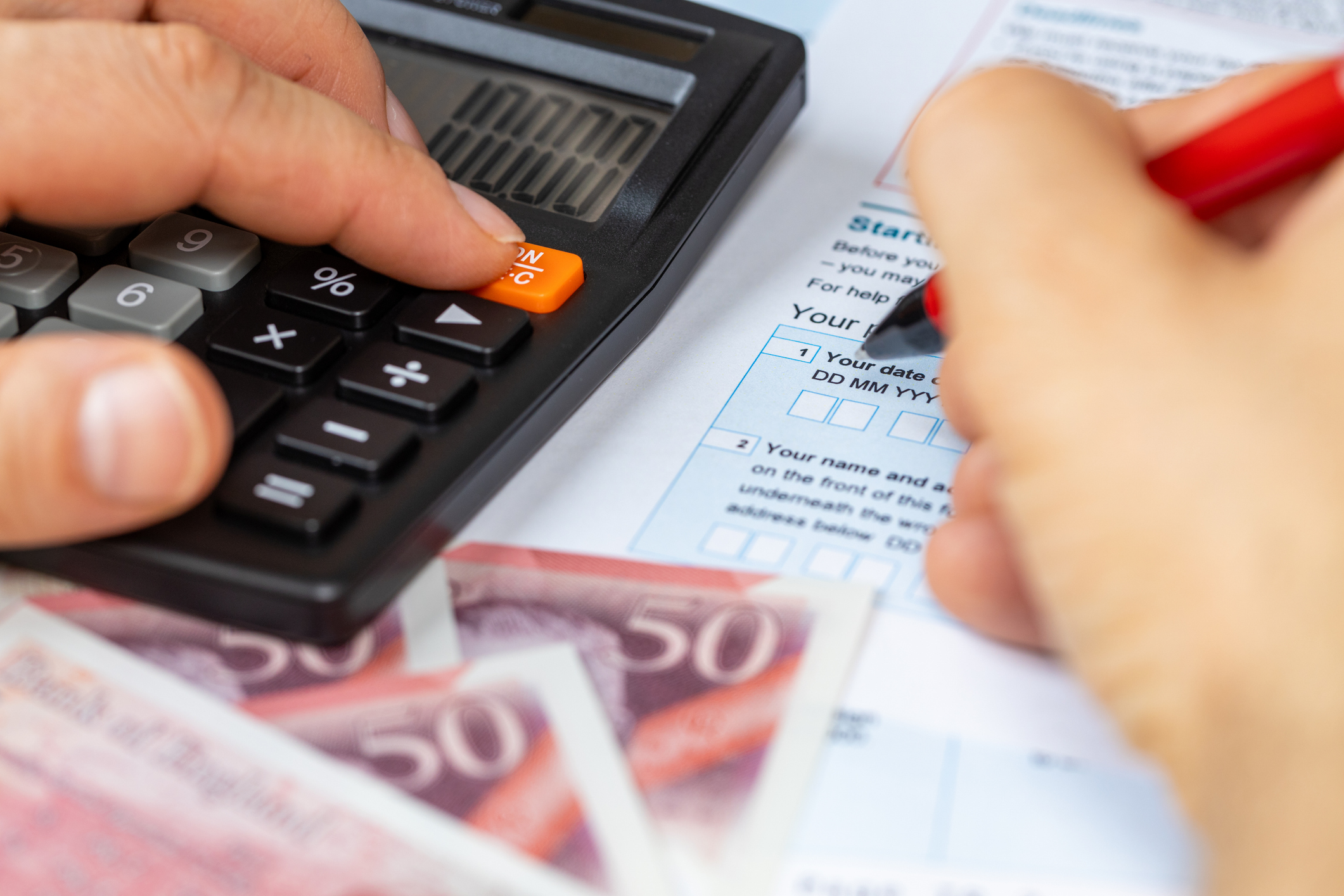How to deal with self-assessment tax returns after a very trying year
The Covid-19 pandemic will complicate the self-assessment tax return process for 2019-20. What if you can’t pay? Ruth Jackson-Kirby has some advice.


Get the latest financial news, insights and expert analysis from our award-winning MoneyWeek team, to help you understand what really matters when it comes to your finances.
You are now subscribed
Your newsletter sign-up was successful
Want to add more newsletters?

Twice daily
MoneyWeek
Get the latest financial news, insights and expert analysis from our award-winning MoneyWeek team, to help you understand what really matters when it comes to your finances.

Four times a week
Look After My Bills
Sign up to our free money-saving newsletter, filled with the latest news and expert advice to help you find the best tips and deals for managing your bills. Start saving today!
The tax-return deadline of 31 January is looming, but millions of us still haven’t filed our self-assessment forms for the financial year between 6 April 2019 and 5 April 2020. And this year, thanks to the fallout from Covid-19, the process could prove particularly protracted.
“Each year about 11 million people have to complete a self-assessment tax return,” says Rupert Jones in The Guardian. “There were still 5.4 million taxpayers who hadn’t filed by 31 December 2019 and 5.5 million who were yet to file by 31 December 2018.”
So, if you’ve yet to sit down and work out what you owe the taxman, you are not alone. However, this year, for once, the tax authorities are being understanding. HMRC says it will aim to be lenient with those affected by the pandemic.
MoneyWeek
Subscribe to MoneyWeek today and get your first six magazine issues absolutely FREE

Sign up to Money Morning
Don't miss the latest investment and personal finances news, market analysis, plus money-saving tips with our free twice-daily newsletter
Don't miss the latest investment and personal finances news, market analysis, plus money-saving tips with our free twice-daily newsletter
The Covid-19 excuse
“The taxman is developing a simplified ‘Covid-19 excuse’ form that will allow the self-employed and landlords to miss the January 31 deadline for filing and paying their returns,” says David Byers in The Sunday Times.
“It will allow those who say they have a reason for late filing due to the pandemic to avoid stiff penalties.” One valid reason for a delay could be “pressures of home schooling”, says Rob Davies in The Guardian. “People who can show that either they or their accountant have recently been ill with the virus are also likely to be shown clemency.”
File on time
Usually, if you miss the deadline you face escalating fines that start at £100 for being three months late. After that you are liable for an additional £10 a day up to a maximum of £900. It continues with fines of a further £300 or more if you are more than six months late. This year these fines are being waived if you are late owing to Covid-19, but you will have to pay interest on unpaid tax at 2.6%.
If you do file your tax return before 31 January, then you may not need to pay your bill by that date. “Once an individual has done their 2019-2020 return, and knows their tax calculation, they can set up a payment plan, provided they owe less than £30,000,” says Jones in The Guardian.
“They can then choose how much to pay straight away and how much to pay each month by direct debit, and it can all be done online. Needless to say, you’ll have to pay interest.”
“We want to encourage as many people as possible to file on time even if they can’t pay their tax straight away,” HMRC has said. If the pandemic prevents someone from doing so, “we will accept they have a reasonable excuse and cancel penalties, provided they manage to file as soon as possible after that”.
Tax relief for working from home
While the bulk of Covid-19’s effect won’t be felt with this round of tax returns – they cover the year to 5 April 2020 – you do need to think about how your work was affected in the early days.
The first national lockdown began on 23 March 2020, but many people weren’t in the office before then. If your employer had told you to work from home in the 2019-2020 tax year, then you can claim tax relief for each week.
“If you go for the easy, no-receipts-required route, your claim will be based on the assumption that you have incurred costs of £6 a week, and you will get back the tax you would have paid on that,” says Jones. That’s £1.20 a week for basic-rate taxpayers and £2.40 for higher-rate taxpayers.
Anyone who thinks working from home has cost you more than £6 a week can put in a claim for more. However, you have to provide evidence of the cost increases and explain why they were directly related to your work from home.
Those that don’t fill in a tax return can claim the relief via a specific “working from home” form on Gov.uk. Otherwise, you’ll need to claim it as an expense on your self-assessment form.
Get the latest financial news, insights and expert analysis from our award-winning MoneyWeek team, to help you understand what really matters when it comes to your finances.

Ruth Jackson-Kirby is a freelance personal finance journalist with 17 years’ experience, writing about everything from savings accounts and credit cards to pensions, property and pet insurance.
-
 How a ‘great view’ from your home can boost its value by 35%
How a ‘great view’ from your home can boost its value by 35%A house that comes with a picturesque backdrop could add tens of thousands of pounds to its asking price – but how does each region compare?
-
 What is a care fees annuity and how much does it cost?
What is a care fees annuity and how much does it cost?How we will be cared for in our later years – and how much we are willing to pay for it – are conversations best had as early as possible. One option to cover the cost is a care fees annuity. We look at the pros and cons.
-
 Why it might be time to switch your pension strategy
Why it might be time to switch your pension strategyYour pension strategy may need tweaking – with many pension experts now arguing that 75 should be the pivotal age in your retirement planning.
-
 Rachel Reeves is rediscovering the Laffer curve
Rachel Reeves is rediscovering the Laffer curveOpinion If you keep raising taxes, at some point, you start to bring in less revenue. Rachel Reeves has shown the way, says Matthew Lynn
-
 ISA reforms will destroy the last relic of the Thatcher era
ISA reforms will destroy the last relic of the Thatcher eraOpinion With the ISA under attack, the Labour government has now started to destroy the last relic of the Thatcher era, returning the economy to the dysfunctional 1970s
-
 Investing in forestry: a tax-efficient way to grow your wealth
Investing in forestry: a tax-efficient way to grow your wealthRecord sums are pouring into forestry funds. It makes sense to join the rush, says David Prosser
-
 Two million taxpayers to be hit by £100k tax trap by 2026/27
Two million taxpayers to be hit by £100k tax trap by 2026/27Frozen thresholds mean more people than ever are set to pay an effective income tax rate of 60% as their earnings increase beyond £100,000. We look at why, as well as how you can avoid being caught in the trap.
-
 'Expect more policy U-turns from Keir Starmer'
'Expect more policy U-turns from Keir Starmer'Opinion Keir Starmer’s government quickly changes its mind as soon as it runs into any opposition. It isn't hard to work out where the next U-turns will come from
-
 13 tax changes in 2026 – which taxes are going up?
13 tax changes in 2026 – which taxes are going up?As 2026 gets underway, we look at what lies ahead in terms of changes to tax rates and allowances this year and how it will affect you.
-
 Why pension transfers are so tricky
Why pension transfers are so trickyInvestors could lose out when they do a pension transfer, as the process is fraught with risk and requires advice, says David Prosser